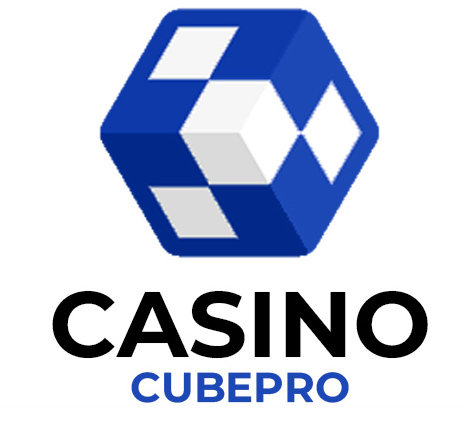
Launching or choosing a new UK independent online casino requires careful attention to licensing, fair play, security and customer experience. For players seeking a fresh platform or operators planning an entry into the market, understanding how independence interacts with UK regulation, third‑party audits and evolving player expectations is essential. For a quick reference to a modern example, consider new uk independent online casino Casinoways Casino as a representation of contemporary design and feature priorities in the sector.
A “new UK independent online casino” generally denotes a platform that is recently established, operates in the UK market, and emphasizes autonomy in its business model — often meaning it is not part of a large multinational group or does not run as a franchise of a legacy brand. Independence can bring agility, niche product focus, and a willingness to adopt innovative features or payment methods. However, independence also presents challenges: smaller brands must build trust from scratch and demonstrate robust compliance with the UK Gambling Commission (UKGC) standards, data protection laws, and anti‑money laundering (AML) requirements.
Regulatory compliance is the cornerstone for any operator serving UK players. The UKGC demands transparent operations, responsible gambling tools, identity verification procedures, and firm controls against problem gambling and money laundering. A new independent operator must secure an appropriate licence and often relies on external advisors to set up policies and reporting mechanisms. Players should verify licencing information on the casino’s site and cross‑check it on the UKGC register. Genuine operators publish licensing details, terms and conditions, and player protection measures clearly.
Technical integrity and fairness are equally important. Independent casinos typically partner with established software providers for their game libraries and random number generation (RNG) technologies, ensuring outcomes are impartial. Reputable operators will provide proof of independent testing via third‑party auditors such as eCOGRA, GLI, or iTech Labs. This independent certification confirms payout percentages and randomisation standards are maintained. For players, evidence of certification is a key trust indicator when evaluating a new site.
Security measures are another critical area. New UK independent online casinos must encrypt player data with industry‑standard TLS/SSL protocols and safeguard financial transactions. Compliance with the UK’s Data Protection Act and the UK General Data Protection Regulation (UK GDPR) framework requires responsible data handling, transparent privacy policies and secure storage practices. Players should look for clear privacy statements and note whether a casino uses secure payment gateways and reputable processors.

Payment options reflect an operator’s modernity and market orientation. Many new independent brands offer a broad spectrum of deposit and withdrawal methods: debit cards, e‑wallets, bank transfers, prepaid vouchers, and in some cases, support for regulated cryptocurrency services where allowed. Swift, transparent withdrawal processing and clear fee policies are important differentiators. Independent casinos aiming to compete must prioritize efficient verification workflows to minimize withdrawal delays while maintaining compliance with KYC and AML requirements.
Customer experience and support often define an independent casino’s reputation. Smaller, newer sites can compensate for limited brand recognition by offering attentive live chat, fast email responses and robust help centers. A helpful onboarding process — including guides on responsible play, bonus terms and how to make a withdrawal — reduces friction and builds loyalty. Community engagement through social channels and transparent dispute resolution procedures also contribute to a positive reputation trajectory.
Bonuses and promotions at a new UK independent online casino are typically used to attract first‑time customers. While generous sign‑up offers and loyalty programmes can be appealing, players must scrutinize wagering requirements, game weighting, maximum bet rules and time limits. Operators committed to long‑term credibility design straightforward, fair bonus terms and avoid aggressive marketing that conflicts with UK advertising and social responsibility standards.
Responsible gambling tools are non‑negotiable in the UK market. New independent casinos should provide deposit limits, session reminders, self‑exclusion options, and links to support services such as GamCare or GambleAware. Operators that proactively intervene when harm indicators appear — using spending analytics, play patterns and customer conversations — demonstrate a commitment to player wellbeing over short‑term revenue.
Content diversity matters. While many independent casinos use third‑party aggregators to access broad game libraries, others carve out niches by offering curated collections: high‑volatility slots, live dealer tables from boutique studios, or skill‑based games. Custom branding, exclusive tournaments and localized language or payment options can make an independent site attractive to specific UK segments. However, diversification should never compromise compliance or fairness.

Marketing and branding strategies for independent operators emphasize storytelling, user experience and trust signals. Building credibility involves transparent leadership disclosures, visible regulatory badges, easily accessible terms and a track record of prompt payouts. Affiliates and comparison sites can drive traffic, but operators must ensure affiliate practices comply with UK advertising standards and that promotions are not misleading.
From a player perspective, choosing a new UK independent online casino involves a checklist: verify the UKGC licence, confirm independent testing and fair play certifications, review security and privacy measures, evaluate payment and withdrawal policies, and assess customer support responsiveness. Reading user reviews and testing small deposits before committing funds help mitigate risk. Players should also be cautious of sites that pressure rapid deposits or obscure withdrawal terms.
For operators planning to launch, early investment in compliance, security infrastructure and player protection systems pays dividends. Partnering with established payment providers, licensed game developers and certified auditors builds credibility. A scalable customer support team and robust KYC workflows reduce dispute incidence and foster positive word‑of‑mouth. Moreover, transparent communication about responsible gambling measures and data practices differentiates trustworthy operators in a crowded market.
Looking ahead, the UK online casino sector will continue to evolve around regulatory shifts, technology (including AI for customer service and fraud detection), and changing consumer preferences. Independence allows smaller operators to experiment with innovative loyalty models, bespoke game content, or localized experiences. Yet, success hinges on earning player trust through concrete commitments to fairness, safety and responsible play.
In conclusion, a new UK independent online casino can offer fresh experiences and tailored features, but both players and operators must prioritize regulation, security and transparency. By focusing on independent testing, clear licensing, robust player protections and reliable customer service, independent brands can carve out sustainable positions in the UK market while delivering competitive, enjoyable gaming experiences.

